International
Lula says he can aspire to re-election to prevent “troglodytes” from returning to power
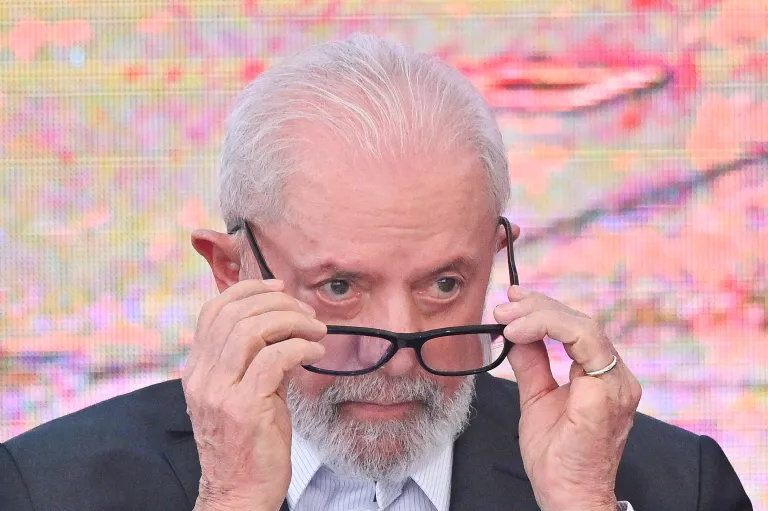
The president of Brazil, Luiz Inácio Lula da Silva, said on Tuesday during a radio interview that he will seek re-election, if his candidacy prevents the country from being governed again by “troglodytes.”
In a clear reference to the Government of Jair Bolsonaro (2019-2022), Lula pointed out that he will not allow the country to be “condemned by a denier again.”
“If it were necessary to be a candidate to prevent the troglodytes that ruled this country from governing again, (…) I could be a candidate,” the president said during an interview with the CBN station of the Globo group.
Lula, however, stressed that a new candidacy to assume the head of state is not among his priority objectives, because of age, since he would be in the campaign at the age of 80 and has to think about his state of health by then.
“We have to be responsible to Brazil, but I am not going to allow Brazil to be governed by a fascist again,” he insisted.
Lula has always positioned himself firmly against the management of Bolsonaro, a nostalgic for the military dictatorship (1964-1985), defender of the exploitation of the natural resources of the Amazon, and one of the few denialist leaders of the COVID-19 pandemic, which left about 700,000 dead in Brazil.
The progressive leader, now 78 years old, assumed his third term in January 2023 after defeating Bolsonaro, one of the leaders of the extreme right in Latin America, in the elections, and after having governed the country for two consecutive periods, between 2003 and 2010.
International
Chile declares state of catastrophe as wildfires rage in Ñuble and Biobío

Wildland firefighting crews are battling 19 forest fires across the country, 12 of them concentrated in the Ñuble and Biobío regions, located about 500 kilometers south of Santiago.
“In light of the severe fires currently underway, I have decided to declare a state of catastrophe in the regions of Ñuble and Biobío. All resources are now available,” the president announced in a post on X.
Authorities have not yet released an official report on possible casualties or damage to homes.
According to images broadcast by local television, the fires have reached populated areas, particularly in the municipalities of Penco and Lirquén, in the Biobío region, which together are home to nearly 60,000 people. Burned vehicles were also reported on several streets.
“The Penco area and the entire Lirquén sector are the most critical zones and where the largest number of evacuations have taken place. We estimate that around 20,000 people have been evacuated,” said Alicia Cebrián, director of the National Disaster Prevention and Response Service (Senapred), in an interview with Mega TV.
In recent years, forest fires have had a severe impact on the country, especially in the central-southern regions.
On February 2, 2024, multiple wildfires broke out simultaneously around the city of Viña del Mar, located 110 kilometers northwest of Santiago. Those fires resulted in 138 deaths, according to updated figures from the public prosecutor’s office, and left approximately 16,000 people affected, based on official data.
International
Former South Korean President Yoon sentenced to five years in prison
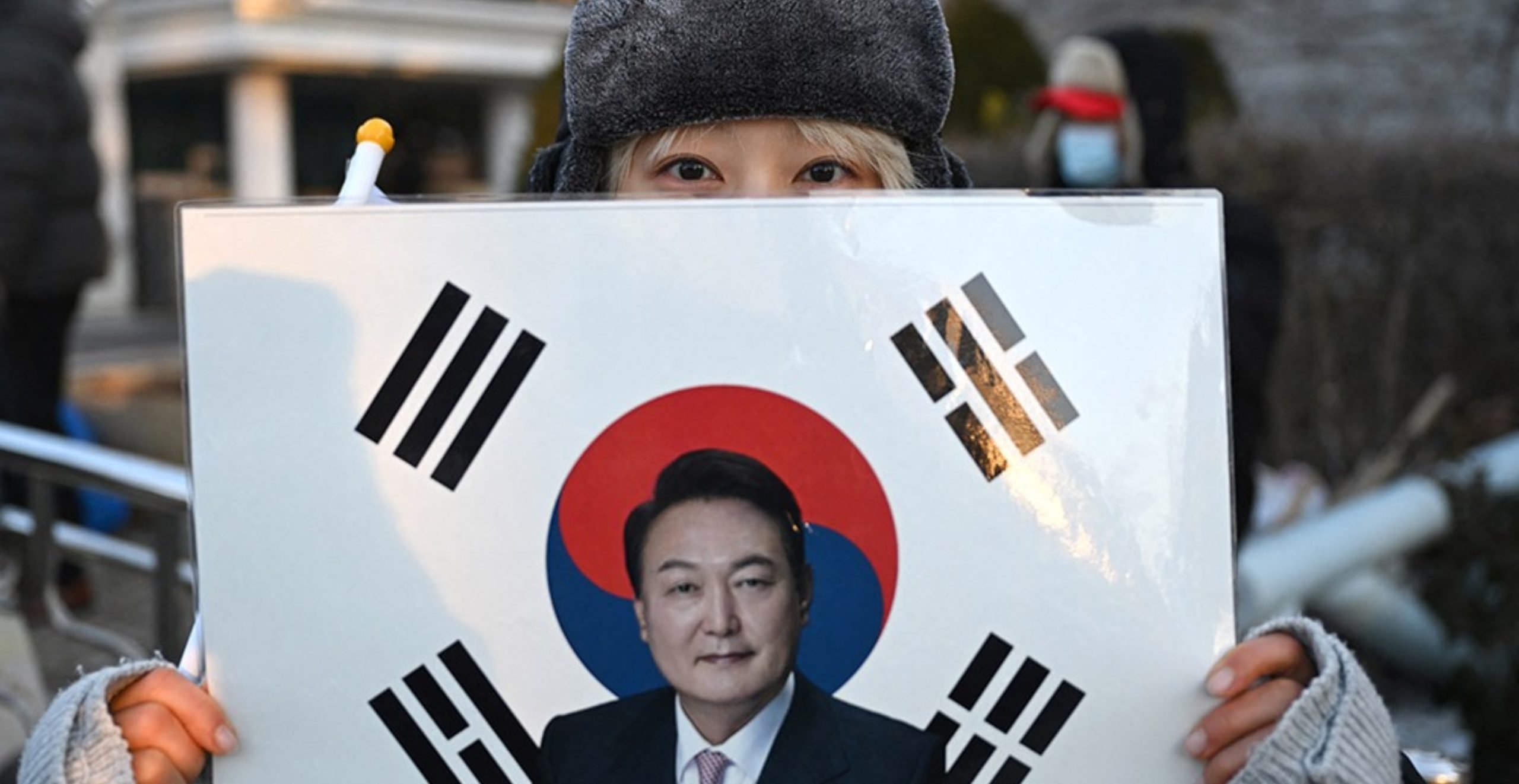
Former South Korean president Yoon Suk-yeol was sentenced on Friday to five years in prison for obstruction of justice and other charges, concluding the first in a series of trials stemming from his failed attempt to impose martial law in December 2024.
The sentence is shorter than the 10-year prison term sought by prosecutors against the 65-year-old conservative former leader, whose move against Parliament triggered a major political crisis that ultimately led to his removal from office.
Yoon, a former prosecutor, is still facing seven additional trials. One of them, on charges of insurrection, could potentially result in the death penalty.
On Friday, the Seoul Central District Court ruled on one of the multiple secondary cases linked to the affair, which plunged the country into months of mass protests and political instability.
International
U.S. deportation flight returns venezuelans to Caracas after Maduro’s ouster
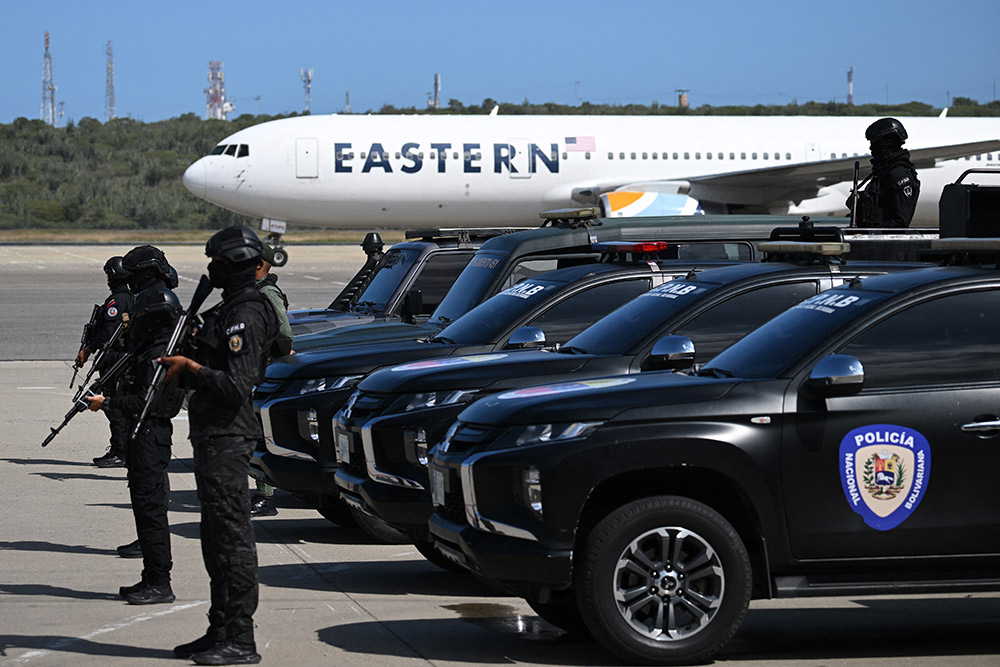
A new flight carrying 231 Venezuelans deported from the United States arrived on Friday at the airport serving Caracas, marking the first such arrival since the military operation that ousted and captured President Nicolás Maduro.
On January 3, U.S. forces bombed the Venezuelan capital during an incursion in which Maduro and his wife, Cilia Flores, were captured. Both are now facing narcotrafficking charges in New York.
This was the first U.S.-flagged aircraft transporting migrants to land in Venezuela since the military action ordered by President Donald Trump, who has stated that he is now in charge of the country.
The aircraft departed from Phoenix, Arizona, and landed at Maiquetía International Airport, which serves the Venezuelan capital, at around 10:30 a.m. local time (14:30 GMT), according to AFP reporters on the ground.
The deportees arrived in Venezuela under a repatriation program that remained in place even during the height of the crisis between the two countries, when Maduro was still in power. U.S. planes carrying undocumented Venezuelan migrants continued to arrive throughout last year, despite the military deployment ordered by Trump.
-
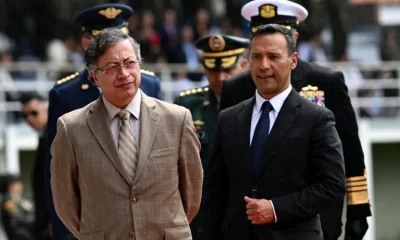
 International5 days ago
International5 days agoColombian Defense Chief Meets U.S. Officials to Advance Bilateral Narcotics Strategy
-

 International4 days ago
International4 days agoUkraine declares nationwide energy emergency amid russian attacks and extreme cold
-
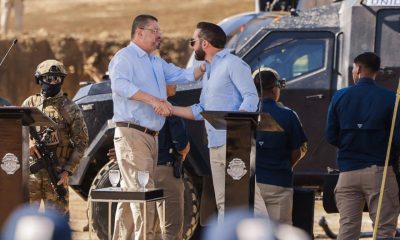
 Central America4 days ago
Central America4 days agoBukele warns crime can become a ‘parallel government’ during visit to Costa Rica
-

 International2 days ago
International2 days agoU.S. deportation flight returns venezuelans to Caracas after Maduro’s ouster
-

 International4 days ago
International4 days agoIran closes airspace amid U.S. threats and deadly nationwide protests
-

 International4 days ago
International4 days agoX moves to block Grok from creating sexualized images of real people amid legal scrutiny
-

 International4 days ago
International4 days agoHillary Clinton skips Epstein inquiry as house panel threatens contempt charges
-

 International4 days ago
International4 days agoFrance joins Denmark’s ‘Operation Arctic Resistance’ in Greenland amid U.S. tensions
-

 Central America16 hours ago
Central America16 hours agoGuatemala prison uprisings leave 46 guards held by gangs
-
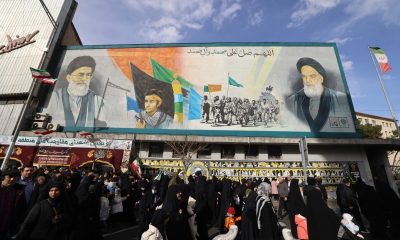
 International3 days ago
International3 days agoCanada accuses Iran of killing its citizen during anti-government unrest
-

 International4 days ago
International4 days agoUK Intelligence estimates russian casualties in Ukraine at over 1.2 million
-

 International4 days ago
International4 days agoU.S.–Denmark tensions escalate as Trump pushes NATO to back U.S. claim on Greenland
-
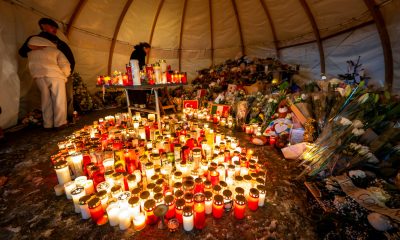
 International4 days ago
International4 days agoSwiss Canton of Valais Grants Emergency Aid to Victims of Crans-Montana Bar Tragedy
-
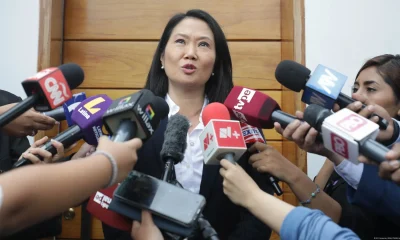
 International5 days ago
International5 days agoPeruvian Court Orders Definitive Dismissal of Money Laundering Case Against Keiko Fujimori
-

 International3 days ago
International3 days agoSheinbaum highlights anti-drug gains after U.S. says challenges remain
-

 International4 days ago
International4 days agoU.S. to suspend visa processing for applicants from 75 countries
-

 International2 days ago
International2 days agoFormer South Korean President Yoon sentenced to five years in prison
-

 International16 hours ago
International16 hours agoChile declares state of catastrophe as wildfires rage in Ñuble and Biobío


























